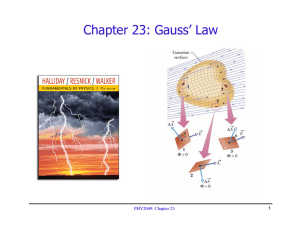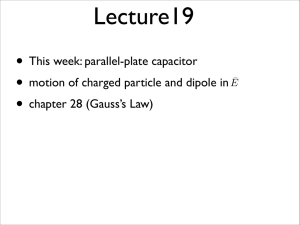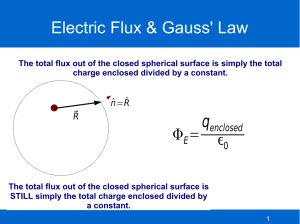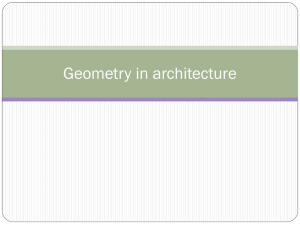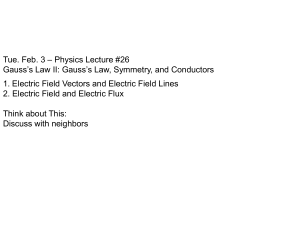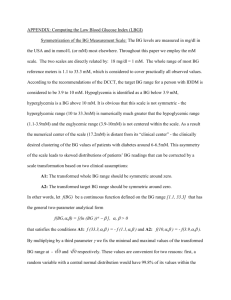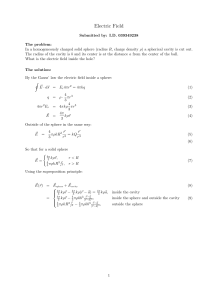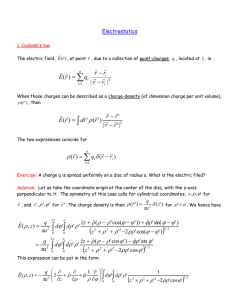Plan E for symmetric geometries 2. Comparison of three highly symmetric
advertisement
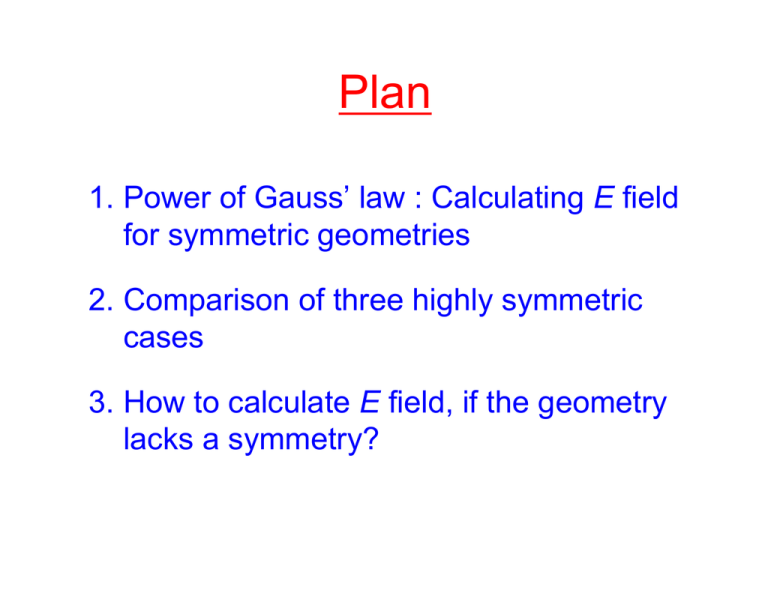
Plan 1. Power of Gauss’ law : Calculating E field for symmetric geometries 2. Comparison of three highly symmetric cases 3. How to calculate E field, if the geometry lacks a symmetry? (Gauss’ Law, which will appear in Ch. 23, is equivalent to Coulomb’s Law.) Comparisons 1. Outside a uniformly charged sphere or 1 q total spherical shell: E= 4πε0 r 2 2. Field due to a uniformly charged, infinitely long (i.e., very long) line: 1 λ E= 2πε 0 r 3. Field due to a charged plane: σ no distance dependence E= 2ε 0 How to calculate E field, if the geometry lacks a symmetry? Numerically integrate dE produced by all charge elements dq. (It is usually easier to numerically compute the electric potential V first and then E --- subject of Chapter 24.)
